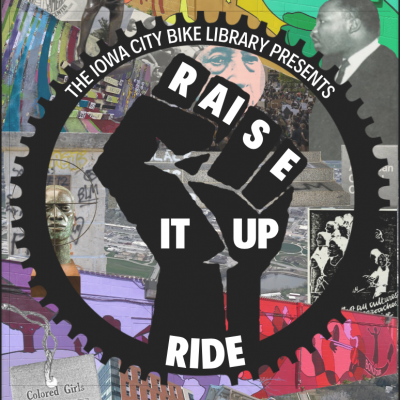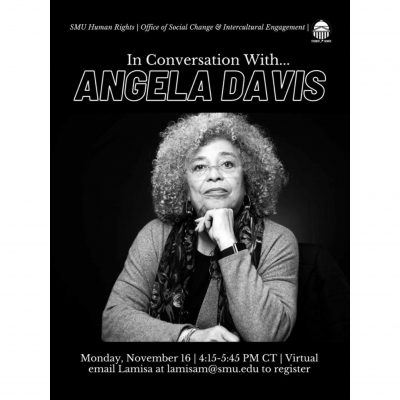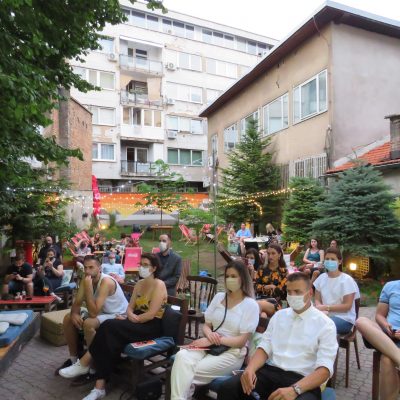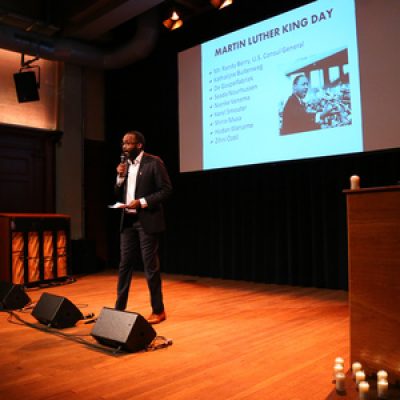Article
Background Inspiration
Biking through a politically liberal college town, the history of racial injustice endures. Austin Wu sought to shed light on this issue in Iowa City. In his eyes, there is a “collective amnesia in Iowa City surrounding local Black history.” His Action Project topic was initially chosen based off an idea from the Bike Library, a non-profit which sells used bicycle and does repairs. In the summer of 2020, this idea was developed following the murder of George Floyd and protests throughout the United States, including in Iowa City, against racial injustice and police violence.
Throughout that summer, many engaged in protests. Yet, Austin found what little commemorates Black history in Iowa City tends to be heroic narratives. These narratives highlight successful individuals whose experiences have been appropriated into a mythico-history of ceaseless and inevitable progress.
Such singular stories have wiped out many of the collective struggles Black people endured – and continue to endure. They have also covered the darker elements of Iowa City’s past. One such element is the practice of systemic housing segregation through restrictive covenants in the early-mid 20th century.
These narratives highlight successful individuals whose experiences have been appropriated into a mythico-history of ceaseless and inevitable progress.
Austin’s Ambitions

At the time, Austin was also independently a commissioner on the City’s Historic Preservation Commission. The Commission had recently adopted a resolution calling for “a fuller picture” to be told in regards to the City’s historical treatment of racial and ethnic minorities. Austin saw in this ride a dual opportunity to combine pandemic-era discourse of reimagining cities beyond cars – in favour of more human-scaled modes such as bicycles – as well as an opportunity to confront the blind spots of conventional narratives in local history sidelining accounts of systemic racism and oppression in Iowa City.
To see the extent on the trip, check out the Rise It Up Ride map.
Project Development
To engage with the issue, Austin began the project Rise It Up Ride in collaboration with local partners in the city and two other Humanity in Action Fellows, Caroline Garske and John Lyons. The project paints a fuller picture of the history of Black engagement in Iowa City. Through an in-depth, geographically spread engagement with locations, stories, names, images, and music participants engaged with narratives by local figures in the Black community. Local figures

Courtesy of Austin Wu
include the mayor of Iowa City and the president of the South District Neighborhood Association. Through this project, he hoped to bring these histories out of the shadows, including stories of hope and struggle alike.
The white population of Iowa city, a group of the city who are overall less aware of the history of Iowa City, are also the largest demographic of bike users. Thus, by reimagining the city using bikes as the mode of transportation, Austin sought to engage with this group of white bike users.
Bikes bring residents to the South District Neighborhood, a part of Iowa City where less than half of residents are white and nearly a third identify as Black. Compared to the broader city where around three-quarters of Iowa City’s population identifies as white, and 10% as Black overall, bikes bring groups together.
This project did not only bring riders to a neighborhood in a different area of the city, it also informed riders on the scale at which Black communities have contributed to Iowa City’s overall development. In addition to highlighting Black communities’ accomplishments, the ride also showed participants the degree to which oppression has occurred in people’s backyards over the past decades.
Highlights of Rise it up Ride
In describing the highlights for the project, Austin talked about meeting the interviewees, many of whom had lived in Iowa City longer than he had and were extensively involved in the city. The project continues hoping to bring more stories to life.
You can read more about Austin’s project on the KCRG’s news outlet webpage.




